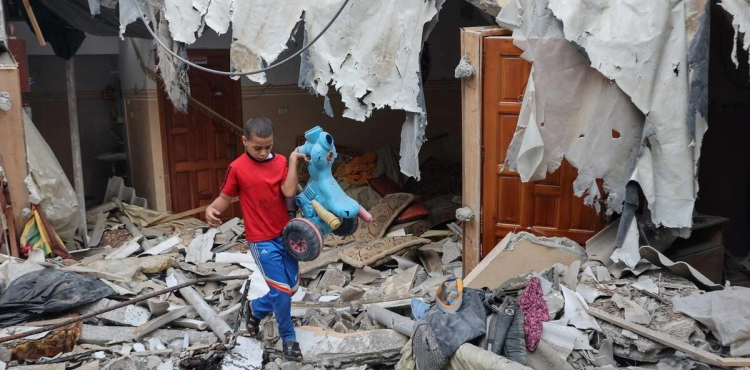The Palestinian NGO Network warned, on Wednesday, of the serious repercussions of the continued deterioration of the economic, social and humanitarian conditions in the Gaza Strip as a result of the continued Israeli blockade for the sixteenth year in a row.
In a statement, the network indicated that the 2023 Humanitarian Response Plan launched by the United Nations and its local and international partners indicates the need for more than $500 million to cover humanitarian needs in the occupied Palestinian territory, with more than 70% of it allocated. to the Gaza Strip.
The indicators of the Humanitarian Response Plan indicate that nearly 60% of the Gaza Strip´s population, which exceeded 2,350,000 people, is in need of humanitarian assistance, most of whom are children, women and persons with disabilities.
The network stresses that the Israeli blockade caused a humanitarian catastrophe that affected all aspects of life for the residents of the Gaza Strip, whose area does not exceed 365 square kilometers, which is the highest population density in the world, as the Israeli occupation forces continue to impose restrictions on the movement of goods and people, and prevent farmers from accessing their agricultural lands. In the border areas, assaulting fishermen in a restricted fishing area, in addition to preventing the entry of many raw materials, devices and equipment, and preventing the export of many items outside the Gaza Strip, which prevents the development of the economic sector.
The blockade on the Gaza Strip was also accompanied by military attacks by the Israeli occupation army, which claimed the lives of thousands of Palestinian civilians, most of them women and children, and caused great destruction to homes, infrastructure and economic institutions.
As the statistics show, more than 60% of the population of the Gaza Strip suffers from food insecurity, in addition to unemployment rates, which have risen, according to official statistics, to nearly 50%, while among youth it has risen to more than 70%, which is the highest in the world. More than 60% of the population of the Gaza Strip is below the poverty line. The occupation also prevented more than 33% of patients in the Gaza Strip from treatment outside the Gaza Strip, and is still preventing the entry of some medical devices and equipment, in addition to the continued power outages for long hours, and the water shortage, As 97% of the water in the Gaza Strip is not suitable for drinking.
The Israeli blockade on the Gaza Strip has resulted in a severe exhaustion of the infrastructure, as well as the systematic destruction of various sectors, including health, education, industry, agriculture, communications, and others. This deterioration is accompanied by the inability of the international community to put pressure on the Israeli occupation, as well as the donors´ reduction of their financial support to the United Nations Relief and Works Agency (UNRWA), as well as to civil society organizations that work to provide services in their various sectors to our Palestinian people.
The network held the Israeli occupation directly legal, political and moral responsibility for what befell the Gaza Strip as a result of the blockade as a collective punishment, which requires holding the occupation accountable for this crime before the International Criminal Court.
The network called on the international community at all levels and official bodies, civil society institutions, human rights and humanitarian organizations to put pressure on the Israeli occupation state to work hard to lift the blockade on the Gaza Strip, in implementation of Resolution No. 1860 issued by the Security Council in 2009, which emphasized the need to lift the blockade on the Gaza Strip. .
It also called on civil society organizations in the world to exercise all pressure on their governments and parliaments in order to carry out their political, legal and moral duty to end the blockade, implement the principles of international law and international humanitarian law, and achieve justice .
The NGO Network called on the donor community to provide financial support for the humanitarian response plan, as well as to work to support the United Nations Relief and Works Agency for Refugees and to intensify its work in the Gaza Strip, the majority of which are refugees .
The network stressed the need to achieve Palestinian reconciliation in a way that enhances the steadfastness of our people in the face of the occupation and its attacks.
NGOs warn of the serious repercussions of the continued blockade of Gaza












